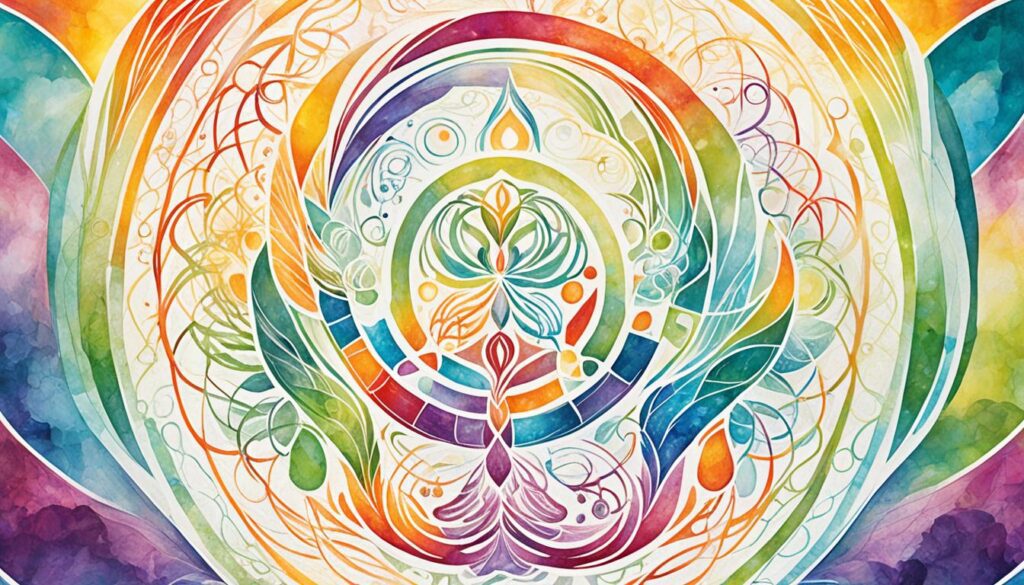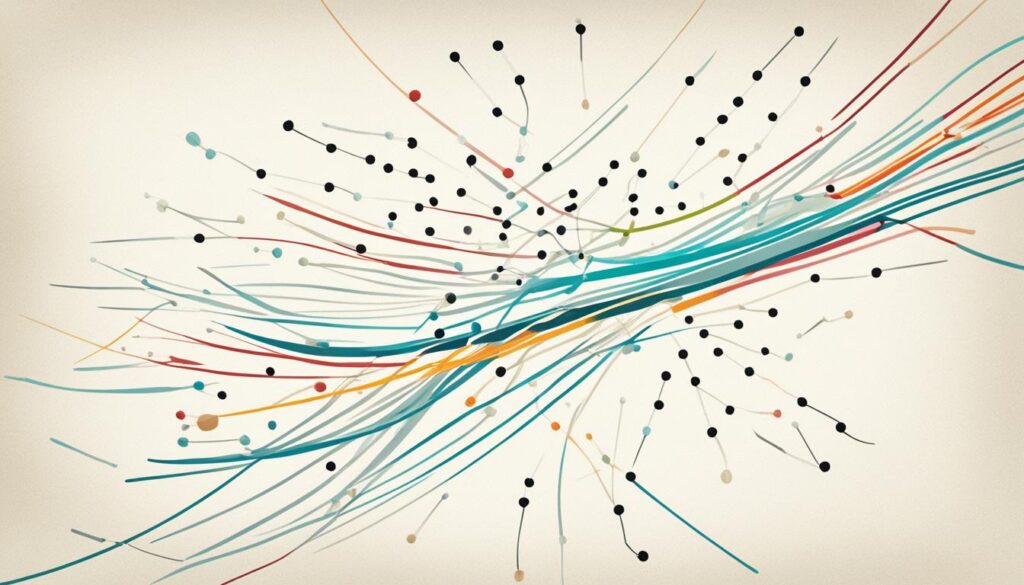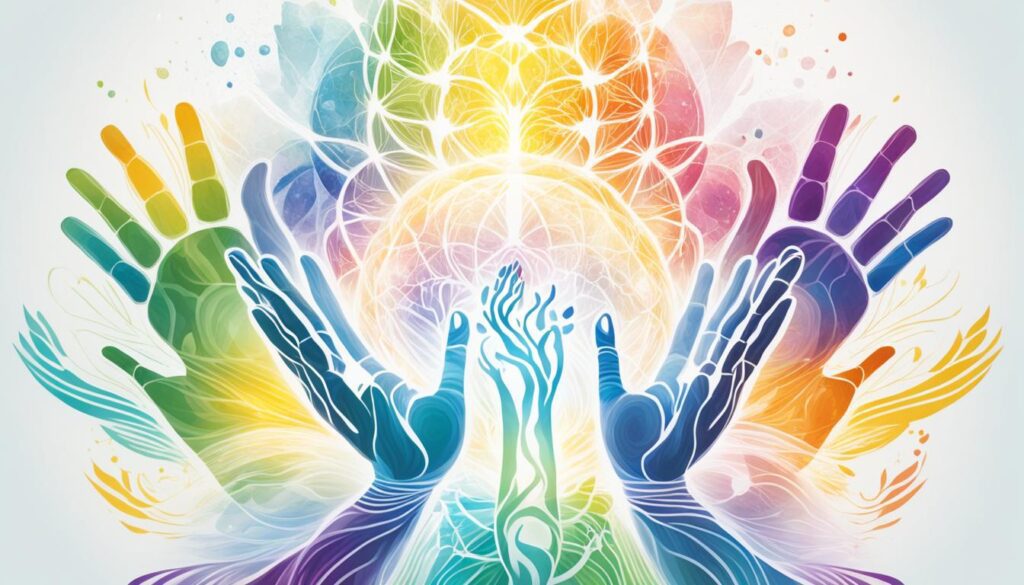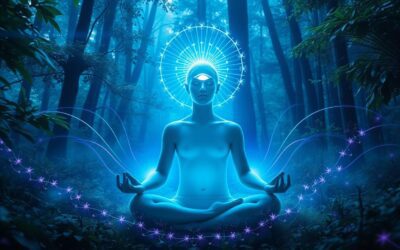Welcome to our insightful journey into the world of holistic healing, where we uncover the transformative potential of alternative medicine, natural remedies, and wellness practices.
In this article, we will explore the comprehensive approach of holistic healing, which focuses on the mind, body, and spirit, and how it can enhance your overall well-being. By embracing holistic healing practices, you can achieve a natural balance and experience complete wellness.
The Mind-Body Connection in Holistic Healing
The mind-body connection is a fundamental concept in holistic healing. It recognizes that our mental and emotional states can directly affect our physical health. Stress and negative emotions can manifest as physical symptoms and lead to health problems.
Holistic healing approaches, such as meditation, deep breathing exercises, yoga, and relaxation techniques, focus on reducing stress and promoting overall health and well-being. These practices aim to establish a harmonious mind-body-spirit connection, allowing individuals to enhance their overall wellness.
Reducing Stress through Mind-Body-Spirit Connection
Meditation is a powerful practice that promotes relaxation and reduces stress levels. By quieting the mind and focusing on the present moment, individuals can calm their thoughts and restore a sense of balance.
Deep breathing exercises, such as diaphragmatic breathing, can also help alleviate stress by oxygenating the body and promoting a state of calm.
“The mind and body are not separate entities; they are interconnected and influence each other profoundly.” – Deepak Chopra
Yoga combines physical postures, breathing techniques, and meditation to cultivate mindfulness and release tension from the body. It not only strengthens the body but also improves flexibility and promotes relaxation.
Additionally, relaxation techniques like progressive muscle relaxation and guided imagery can help individuals achieve a deep state of relaxation, reducing stress and anxiety.

By actively engaging in these holistic practices, individuals can strengthen the mind-body-spirit connection, leading to improved overall health and well-being. The mind and body work together in harmony, allowing for the integration of physical, mental, and emotional aspects of wellness.
Alternative Therapies for Holistic Healing
Alternative therapies are integral to the practice of holistic healing. They encompass a wide range of treatments, each with its unique approach to promoting healing and well-being.
- Acupuncture: Acupuncture involves the insertion of thin needles into specific points on the body to stimulate energy flow and restore balance. This ancient Chinese therapy has been used for centuries to alleviate pain, reduce inflammation, and promote overall health.
- Chiropractic Care: Chiropractic care focuses on the musculoskeletal system, particularly the spine. Through spinal adjustments and manipulations, chiropractors aim to restore proper alignment, improve nerve function, and enhance overall well-being.
- Massage Therapy: Massage therapy involves the manipulation of soft tissues in the body, such as muscles and tendons, to alleviate tension, reduce pain, and promote relaxation. It is renowned for its ability to relieve stress and improve circulation.
- Homeopathy: Homeopathy is a system of natural medicine that uses highly diluted substances to stimulate the body’s healing process. By addressing the underlying causes of illness, homeopathy aims to restore balance and promote overall well-being.
- Naturopathy: Naturopathy emphasizes the healing power of nature and focuses on preventing and treating diseases by incorporating natural remedies and lifestyle changes. It encompasses a holistic approach to wellness, considering the physical, mental, and emotional aspects of health.
- Ayurvedic Medicine: Ayurvedic medicine is an ancient Indian healing system that aims to restore balance to the body, mind, and spirit. It utilizes herbs, diet, lifestyle modifications, and various therapies to promote overall health and well-being.
Each alternative therapy contributes to the holistic healing journey, addressing different aspects of well-being and healing the body, mind, and spirit.
By incorporating these alternative therapies into their health and wellness routines, individuals can experience the transformative benefits of holistic healing.

“Alternative therapies offer unique approaches to promote healing and well-being in the holistic healing journey.”
Energy Medicine and its Role in Holistic Healing
Energy medicine is a fundamental component of holistic healing, harnessing the body’s subtle energy systems to promote balance and facilitate healing.
By understanding and working with the flow of energy within the body, energy healing techniques can address blockages, restore harmony, and activate the body’s natural healing processes.
This section will explore various energy healing modalities and their role in holistic therapy.
One widely recognized energy healing technique is acupuncture. Originating from ancient Chinese medicine, acupuncture involves the insertion of fine, sterile needles at specific points along the body’s meridians, or energy channels.
This stimulates the flow of energy, known as Qi, resolving imbalances and promoting healing. Acupuncture has shown efficacy in treating a range of conditions, including chronic pain, digestive disorders, and anxiety.
Another technique is acupressure, which involves applying pressure to specific points on the body using hands, fingers, or tools. Acupressure stimulates the flow of energy, similar to acupuncture, and helps alleviate tension, promote relaxation, and restore balance.
Reiki is a popular energy healing modality that originated in Japan. It involves the gentle laying of hands on or above the body to channel healing energy. Reiki practitioners believe that the energy flows through them and into the recipient, promoting healing, relaxation, and overall well-being.
Qigong, an ancient Chinese practice, combines movement, meditation, and breathwork with a focus on cultivating and directing energy. By harnessing the power of breath and intentional movement, qigong enhances energy flow, reduces stress, and supports physical, mental, and emotional healing.
Benefits of Energy Healing
“Energy healing techniques have shown great promise in promoting holistic wellness and supporting the body’s natural healing abilities.”
Energy healing modalities offer a range of benefits for individuals seeking holistic therapy. These techniques work with the body’s energy systems to address imbalances and promote optimal well-being. Some of the key benefits of energy healing include:
- Relief from chronic pain and discomfort
- Reduced stress and anxiety
- Improved emotional well-being and mood
- Enhanced immune function
- Improved digestion and metabolic function
- Increased vitality and energy levels
Energy healing techniques are grounded in the concept that a balanced flow of energy is essential for maintaining health and wellness. By restoring balance to the body’s energy systems, these modalities can support the body’s innate healing abilities and promote holistic well-being.

| Energy Healing Modality | Description | Benefits |
|---|---|---|
| Acupuncture | Traditional Chinese technique involving the insertion of needles at specific points along the body’s meridians to stimulate energy flow. |
|
| Acupressure | Applying pressure to specific points on the body to stimulate energy flow and promote relaxation. |
|
| Reiki | A Japanese technique involving the gentle or hands-off laying of hands to channel healing energy. |
|
| Qigong | An ancient Chinese practice combining movement, meditation, and breathwork to cultivate and direct energy. |
|
Nutrition and Holistic Healing
Nutrition plays a crucial role in holistic healing, contributing to a balanced and healthy lifestyle. A holistic approach emphasizes nourishing the body with whole foods to promote overall well-being. Incorporating a variety of fruits, vegetables, whole grains, and lean proteins into your diet is essential for maintaining optimal health.
Processed foods and excessive sugar can lead to health issues and disrupt the body’s natural balance. By opting for nutrient-dense foods, you can enhance your energy levels, uplift your mood, and strengthen your immune system. Well-rounded nutrition is a key component of the whole person healing process.
In addition to wholesome foods, supplements and herbs can complement your holistic lifestyle. They provide additional support for overall health and wellness. However, it’s important to consult with a qualified healthcare professional to determine the most suitable supplements for your individual needs.
A balanced and mindful approach to nutrition can contribute to the restoration of harmony within the body. By fueling your body with nourishing foods and incorporating supplements when necessary, you can support your holistic healing journey.

Embrace the power of nutrition as an integral part of holistic healing, and experience the transformative benefits of a well-nourished body.
Conclusion
Holistic healing offers a powerful and comprehensive approach to achieving overall well-being. By recognizing and embracing the mind-body-spirit connection, individuals can unlock transformative benefits on their wellness journey.
Through exploration and incorporation of alternative therapies, such as acupuncture, chiropractic care, massage therapy, homeopathy, naturopathy, and Ayurvedic medicine, holistic healing provides diverse avenues for healing and balance.
In addition, energy medicine techniques like Reiki and qigong tap into the body’s subtle energy systems, promoting holistic healing from within. By nurturing our bodies with a nutrient-dense diet and incorporating mindfulness and meditation practices, we can support whole person healing and cultivate harmony in our lives.
Integrative health, blending the best of modern medicine with holistic healing practices, offers optimal wellness opportunities.
By adopting a holistic lifestyle, individuals can embark on a journey of complete well-being, embracing the power of the mind-body-spirit connection, energy healing, and holistic therapies. Ultimately, holistic healing empowers individuals to achieve natural balance and live their lives to the fullest.









